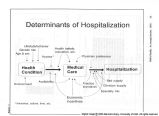Contents | 10 of 151
V3_Page144
| Title | Utah Health Volume3 |
| Publisher | University of Utah FHP Center for Health Care Studies |
| Date | 1993-06 |
| Type | Text |
| Format | application/pdf |
| Digitization Specifications | Scanned at 400ppi on Epson Expression 1640XL flatbed scanner, and saved as uncompressed TIFF. OCR generated with Abby FineReader 7.0. JPEG display images generated with PhotoShop CS. |
| Language | eng |
| Rights Management | Digital image copyright 2005, University of Utah. All rights reserved. |
| Scanning Technician | Robi Stroud |
| ARK | ark:/87278/s6rn35sd |
| Setname | uu_hr |
| ID | 868627 |
| Reference URL | https://collections.lib.utah.edu/ark:/87278/s6rn35sd |
Page Metadata
| Title | V3_Page144 |
| Format | application/pdf |
| Identifier | 144-UtahHealth_V3_Page144.jpg |
| Source | Utah Health Volume 3 |
| Setname | uu_hr |
| ID | 868485 |
| Reference URL | https://collections.lib.utah.edu/ark:/87278/s6rn35sd/868485 |


























































































































































